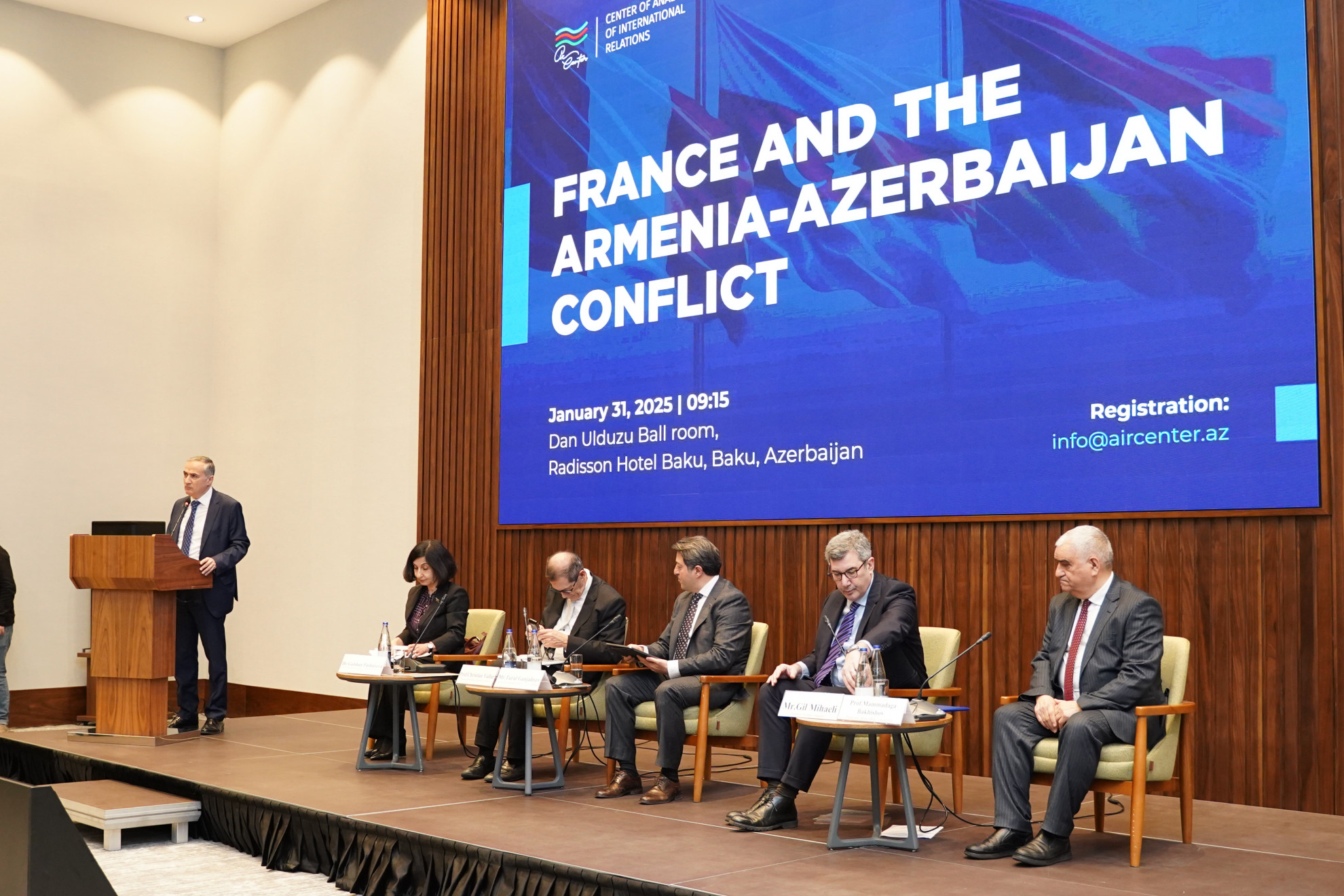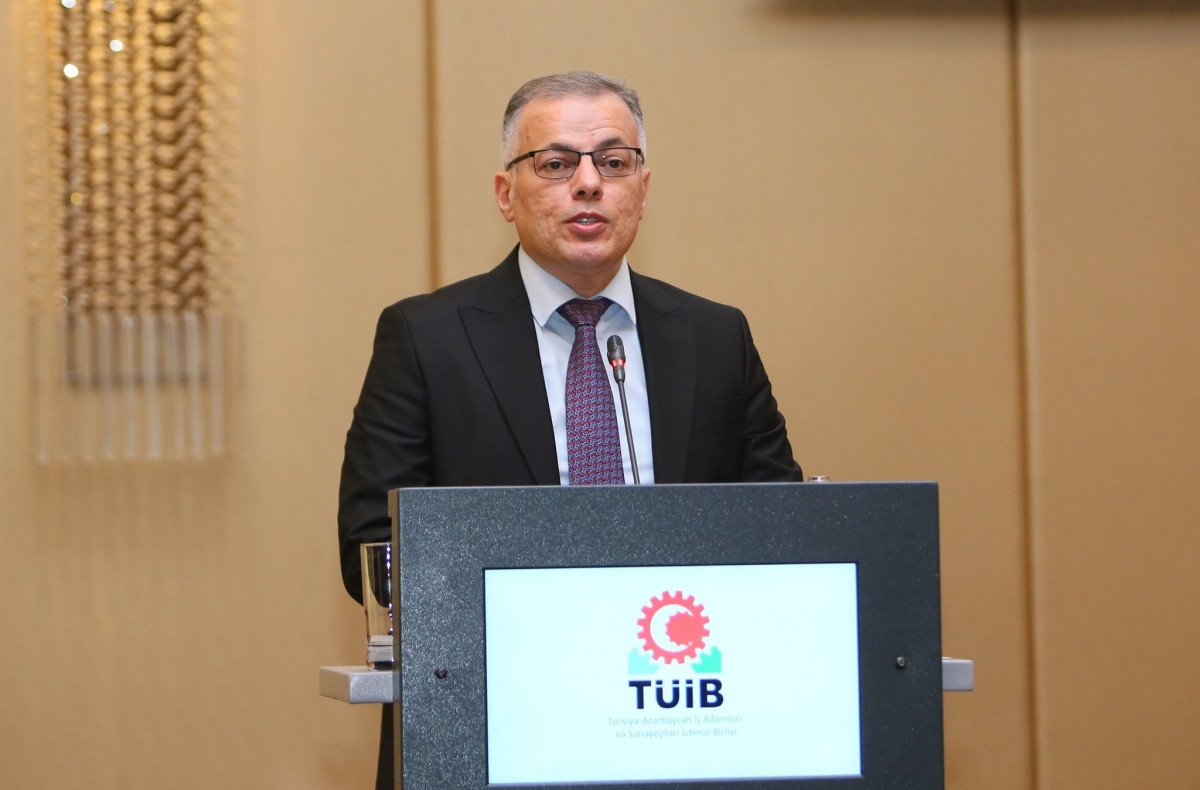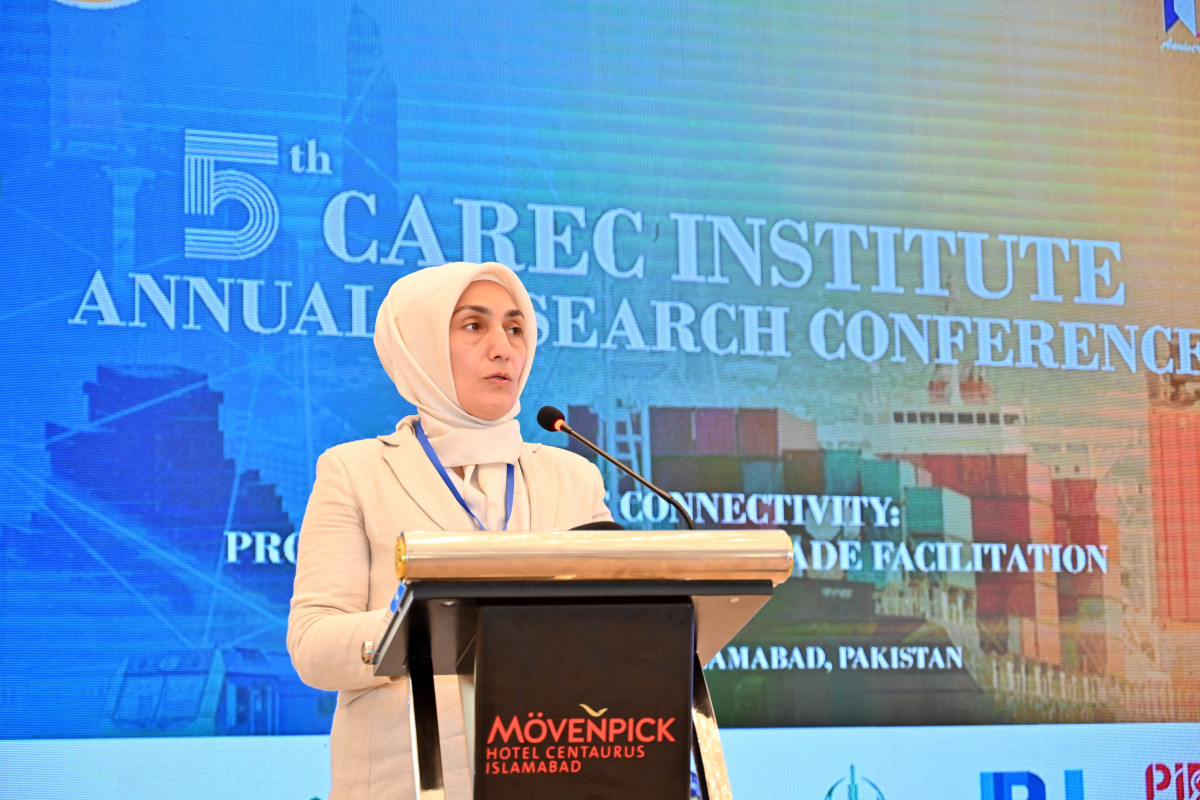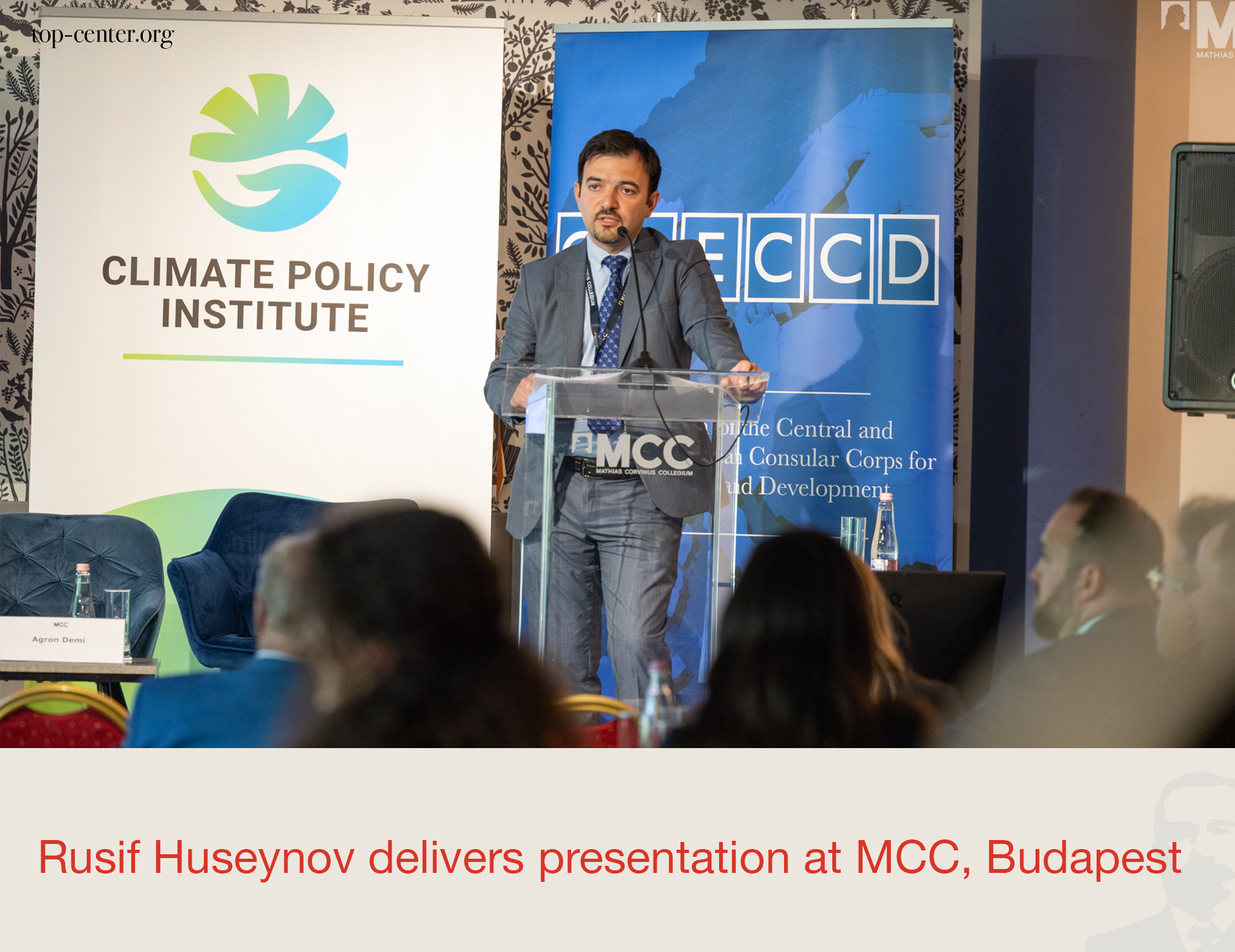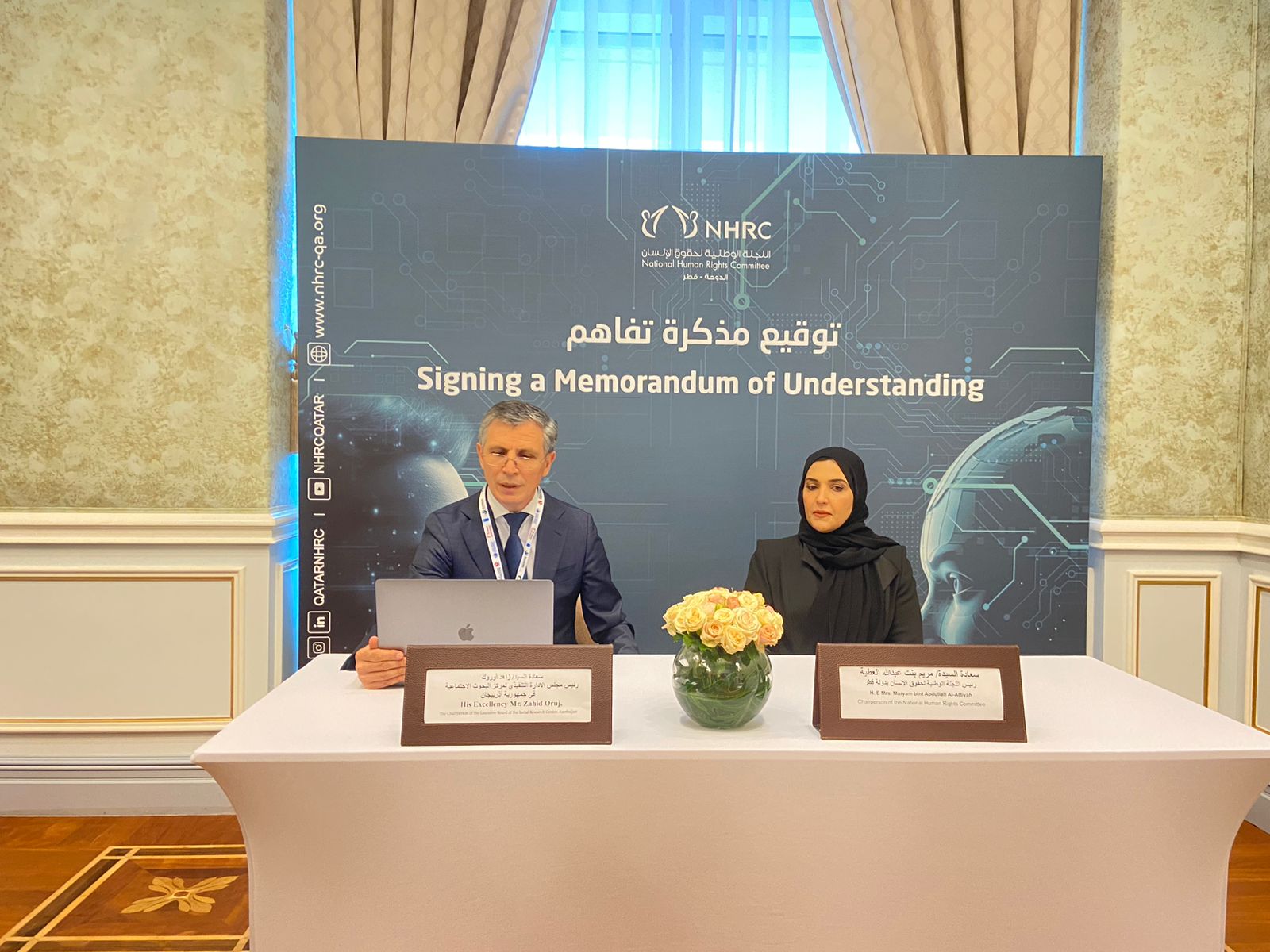On January 31st, 2025, the Center of Analysis of International Relations (AIR Center) organized an international conference titled “France and the Armenia-Azerbaijan conflict.”
In his introductory remarks, Chairman of the Board of the AIR Center, Farid Shafiyev, stressed that the cool down in the bilateral relations is solely the responsibility of France.
He noted that Azerbaijan has always shown interest in building constructive bilateral relations and cooperating in spheres like energy and others.
“The current crisis was created by France. Several factors have played a role in this, including activities of the Armenian diaspora in France and the current administration,” he stated.
Farid Shafiyev also emphasized the importance of developing contacts in the academic sphere, continuing research about France, and learning the French language, notwithstanding the crisis in bilateral relations.
Moderated by AIR Center’s Board Member Gulshan Pashayeva, the first panel on “France’s role in the Armenia-Azerbaijan conflict” saw speeches by Cote D’Azur University’s public law professor Christian Vallar, Member of Azerbaijani Parliament Tural Ganjaliyev, “Conflicts” journal director Gil Mihaely, and Baku State University’s professor Mammadaga Bahishov.
After a brief overview, Gulshan Pashayeva drew attention to France’s unsuccessful and fruitless OSCE Minsk Group co-chairing.
“Even though Azerbaijan tried to resolve the former conflict through diplomatic means, the period of negotiations that was co-mediated by France did not yield any notable outcomes. As a result, the Second Karabakh War took place, and Azerbaijan liberated its territories from occupation, thereby ensuring justice.”
Gulshan Pashayeva also mentioned the special role of the Armenian diaspora in the non-constructive moments experienced in France-Azerbaijan relations both before and after 2020.
Public law professor Christian Vallar highlighted that France was one of the first countries that recognised Azerbaijan’s independence and developed diplomatic relations.
“Despite the developments of the last few years, France had sought to maintain neutrality regarding the conflict, comply with international law, and develop relations in the economic and cultural spheres.”
The professor noted, however, that after Azerbaijan freed its territories from occupation, the situation changed.
“This led to a sharp reaction from France, including the adoption of various decisions and resolutions.”
Member of Azerbaijani Parliament Tural Ganjaliyev noted that during the presidency of Emmanuel Macron, Paris adopted an anti-Azerbaijan position and abandoned traditional pragmatism.
“The strengthening of Azerbaijan is a serious matter of concern for several circles in France. The Armenian diaspora has a direct influence on the ‘elite’. While before 2020 France covertly supported Armenia, after the Second Karabakh War France started to openly demonstrate its anti-Azerbaijani stance.
Director of “Conflicts” journal Gil Mihaeli stated that after the Armenian diaspora in France gained strength, relations between France and Azerbaijan began to deteriorate.
“Since the 1990s, by strengthening relations with French politicians, the Armenian diaspora began to actively promote its agenda in the political and social spheres. Lobby groups became stronger, and the geopolitical situation continued to worsen”, – he stated.
Baku State University’s professor Mammadagha Bakhishov emphasized France’s unequivocal support for Armenia as the major reason for the worsening of bilateral relations, also noting the threats posed by this position for the security of the South Caucasus.
AIR Center’s Head of Department Vasif Huseynov moderated the second panel, during which Member of Azerbaijani Parliament Asim Mollazade, independent researcher and founder of the “EurasiaPeace” think tank Morgan Caillet, senior research fellow at the Institute of European, Russian, and Eurasian Studies at Carleton University in Ottawa (Canada), Robert Cutler, and lawyer from the Strasbourg Bar and co-founder of the French Institute for Culture Jean-Emmanuel Medina shared their thoughts.
Vasif Huseynov noted that after the Second Karabakh War, France adopted a direct and clear pro-Armenian position. He highlighted the importance of understanding and analysing the reasons behind France’s abandoning the neutrality it had adopted prior to 2020.
Robert Cutler noted that Armenia’s weakening in the 2020 Karabakh War and Russia’s waning influence in the South Caucasus have led France to reconsider its limited role in the region:
“The steps taken by France raise certain questions for regional actors and also for non-regional actors. Even though the European Union supports some of its initiatives, the majority of France’s diplomatic and military initiatives directed at the region are unilateral. In the short term, this can cause geopolitical instability.
In the next phase, the situation will depend on the reaction of other regional players.”
Member of Azerbaijani Parliament Asim Mollazade noted that the Armenian diaspora is at the center of France’s biased policy towards the South Caucasus.
Founder of the “EurasiaPeace” think tank Morgan Caillet noted, with reference to the historical relations between Azerbaijan and France, that the current French administration’s policy is dangerous for peace in the South Caucasus.
Jean Emmanuel Medina mentioned France’s support for Azerbaijan’s sovereignty and territorial integrity, noting that France, as the co-chair of the OSCE Minsk Group, along with the United States and Russia, has actively worked for 30 years for the peaceful resolution of the past conflict and has demonstrated this position through concrete diplomatic initiatives.

